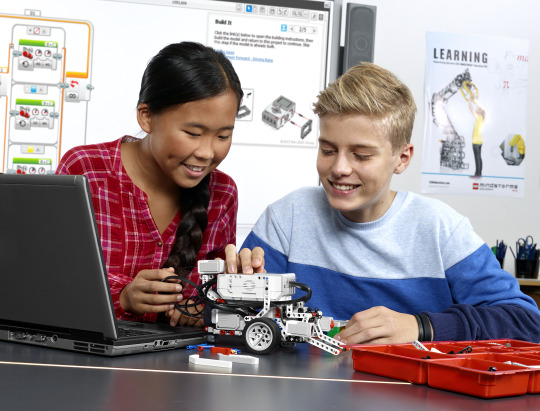We are the children of the (digital skills) revolution
Publication date: October 21, 2016
The landscape of the working world has changed dramatically in the last 50 years. Industries have transformed and technology has fundamentally altered the expectations of employment across all sectors. Technology has created a wealth of opportunities for new jobs; in fact, it’s estimated that around 65 per cent of children will end up in jobs that haven’t even been invented yet!
Building the skills for tomorrow, today!
There are a number of key challenges that are facing our world today; according to the World Economic Forum, 795 million people in the world go hungry every day, and greenhouse gases are at the highest they’ve ever been. It only takes one great idea to spark lasting change, and the one to develop this solution may be in your classroom right now. But in order to become these world-leading change-makers, the students of today must acquire the following skills: problem solving, creativity, teamwork, communication, confidence and resilience.
Classroom cultivation
So how can we develop these skills in the classroom?
The simple answer is to, quite literally, put learning into your students’ hands. Kinaesthetic, hands-on learning combined with the application of coding allows students to bring their programs to life in a tangible way, testing real-world hypotheses with physical resources and recording real results. This gives them autonomy over their learning, which engages and inspires them to
discover their potential.
There are a number of resources that can be used to accomplish this, encouraging students to build and programme solutions. For example, you might want to test the structural integrity of homes in areas often hit by earthquakes, and for this, students could create and program a tremor simulator and build several different structures to test within it. These initial concepts could lead to more complex designs and a summary of what houses need to stay steady under stress.
So, with the world constantly changing and evolving, developing intuitive, independent learners who have not only the academic knowledge to apply to situations, but also those all-important “soft” skills ensures that, when the time comes and they enter the world of work, they are well-prepared and highly-skilled individuals.

To enable as many students to reach their potential, LEGO Education is a proud supporter of EU Code Week and you can try the LEGO MINDSTORMS Education EV3 software for free by visiting the LEGO Education website.
By Simon Davenport, Senior Marketing Manager – Germany, LEGO Education Europe, LEGO and the LEGO logo are trademarks of the LEGO Group. ©2016 The LEGO Group.

